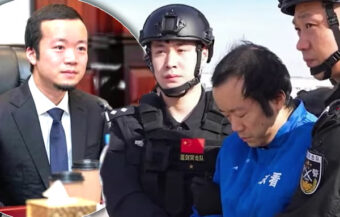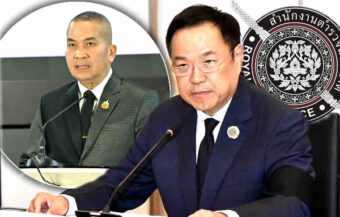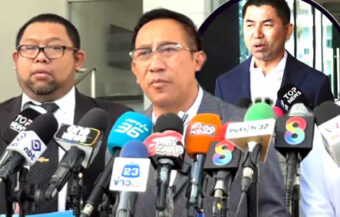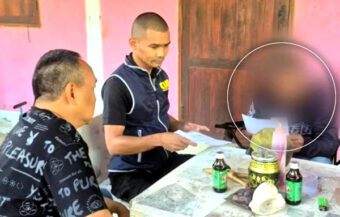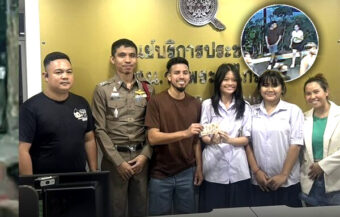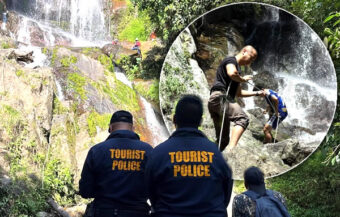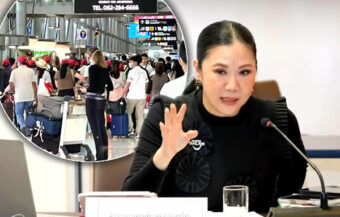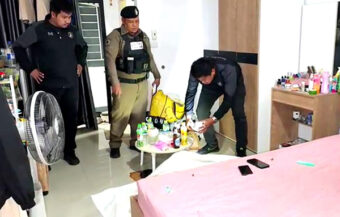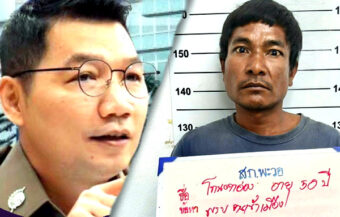Cambodia’s Hun Manet urges sending the border dispute with Thailand to the International Court of Justice after a soldier’s death escalates tensions. Thailand rejects ICJ jurisdiction, fueling nationalist anger as both sides brace for possible clashes in disputed zones.
Tensions over the Thai-Cambodia border escalated on Monday after Cambodia’s strongman Hun Sen called for disputes in the Emerald Triangle and other contested areas to be resolved by the International Court of Justice (ICJ) in The Hague. Thailand, however, has long resisted the court’s jurisdiction. In 2024, Prime Minister Srettha Thavisin’s government issued a clear directive barring all Thai officials and agencies from cooperating with the ICJ. Meanwhile, nationalist sentiment is rising sharply in both countries. In Cambodia, the government has often used external crises to rally domestic support. At the same time, nationalist factions in Thailand are closely monitoring the situation.
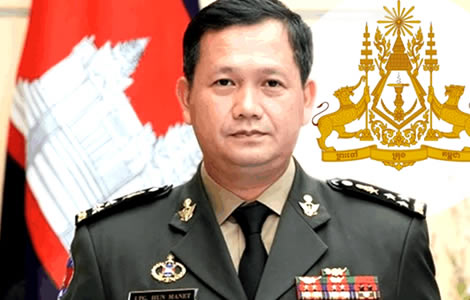
On June 2, 2025, Cambodian Prime Minister Hun Manet called for immediate talks with Thailand to address rising border tensions. His statement, issued late the night before, urged the Cambodia-Thailand Joint Boundary Commission (JBC) to convene without delay. He directed the JBC to work urgently with Thailand to demarcate contentious sections of their shared border.
It came after a strong statement by Cambodia’s de facto ruler and strongman Hun Sen on Sunday. The Cambodian PM’s father underlined his country’s claim to the Chong Bok and Emerald Triangle areas.
The Cambodian leader was responding to rising anger in Thailand’s eastern neighbour over the death of a soldier on May 28th. The soldier died after Cambodian troops were confronted by Thai forces in the disputed area.
Hun Sen and Hun Manet call for ICJ arbitration to resolve disputed temple zones and see boundary demarcation
Hun Sen claimed that territory as Cambodia’s well before the 2001 Memorandum of Understanding (MOU) with Thailand. Indeed, he showed photos of himself visiting the area in the 1990s. After that, on Monday, he called for the case to be decided by the International Court of Justice (ICJ) in The Hague.
Hun Manet similarly proposed that unresolved disputes be sent to the International Court of Justice (ICJ) for legal arbitration. He emphasized that the talks must address four specific temple zones: Ta Muen Thom, Ta Muen Tod, Ta Kro Bei (known in Thai as Ta Kwai), and Mombei. These areas have long been flashpoints. Now, tensions are boiling over again.
In his order, Hun Manet instructed the JBC to start new surveys and install boundary markers in disputed regions. He made clear that Cambodia would place the ICJ proposal on the formal agenda of the upcoming JBC meeting.
This marked a new escalation. The ICJ was previously involved in a historic ruling over the Preah Vihear Temple. That 2013 ruling, based on a 1962 judgment, favored Cambodia.
Hun Manet warns nationalist groups worsen border tensions. Calls for restraint. Military force a last resort
Hun Manet said recent provocations had made the situation dangerous. “Extreme nationalist groups,” he warned, had stirred up unrest on both sides of the border. These groups, he said, had fanned resentment around key flashpoints like Ta Muen Thom and Mumbey. As tensions mount, he urged both sides to show restraint.
However, Hun Manet added that Cambodia would not tolerate any encroachment. If Thai troops entered Cambodian territory by force, Cambodia “reserves the right to respond militarily,” he warned. Nevertheless, he repeated that Cambodia would pursue peaceful means first. Legal and technical channels, he said, were still the preferred route.
The remarks followed his return from an overseas trip and a detailed security briefing from top military commanders. During the meeting, officials updated him on the deadly May 28 incident that has ignited outrage in Phnom Penh.
That morning, the Cambodian soldier was shot and killed in Tejomorakot village, Morakot sub-district, Chomksan district, Preah Vihear province.
Cambodia asserts the soldier was killed inside its territory and demands investigation and accountability
The Cambodian government says the shooting happened around 5:30 a.m. It claims the location lies squarely within Cambodian territory. Officials argue the area has been under Cambodian control since before the 2000 Memorandum of Understanding (MOU) on border cooperation. The soldier, they say, was killed without justification by Thai troops.
On May 30, Cambodia’s Ministry of Foreign Affairs sent a protest letter to the Thai Embassy in Phnom Penh. The letter demanded a swift investigation and legal accountability for those involved. It called the shooting a clear violation of Cambodia’s sovereignty. Thai troops, it said, had no legal basis to operate there.
At the same time, Cambodia pledged to resolve the issue through peaceful means. The Foreign Ministry said diplomatic tools like the JBC and General Border Committee (GBC) remained essential. Cambodia wants a border defined by peace and respect—not by bloodshed and confusion.
Yet the mood in Phnom Penh is increasingly tense. Nationalist anger is rising. Military leaders have placed forces on alert along high-risk stretches of the frontier. In recent days, troop movements were reported near Ta Muen Thom and Ta Kwai. Cambodia has denied any plans to escalate. Still, the situation remains fragile.
Former Thai senator criticizes Cambodia’s ICJ strategy as political weapon. Thailand must uphold its sovereignty
Meanwhile, in Thailand, Hun Manet’s ICJ proposal has stirred strong reaction. Former Thai senator Kamnoon Sidhisamarn issued a blunt warning. In a widely shared Facebook post, he said Cambodia has used the ICJ as a political weapon before. He accused Hun Manet of repeating the tactics of his father, Hun Sen.
Kamnoon referred to the Preah Vihear case as proof. In 2011, Cambodia had asked the ICJ to reinterpret the 1962 judgment. That request led to the 2013 decision, which required Thailand to withdraw troops from surrounding areas. Many Thai conservatives saw the ruling as a national humiliation.
Kamnoon argued that Thailand must reject any move that places the ICJ above Thai law. He said the Thai government had already taken steps to prevent this. On March 12, 2024, the cabinet of Prime Minister Srettha Thavisin passed a resolution barring all Thai agencies from accepting ICJ jurisdiction.
Government reinforces policy to reject ICJ jurisdiction over border disputes to protect Kingdom’s sovereignty
That policy was reinforced in a letter dated March 19, 2024. It instructed all state bodies to avoid any international agreement that could give the ICJ authority over Thai disputes. Kamnoon said this policy must continue. He urged current Prime Minister Paethongtarn Shinawatra to publicly confirm Thailand’s stance.
“This is not about avoiding the law,” Kamnoon wrote. “It’s about defending national sovereignty.” He warned that Cambodia might be using the border crisis to distract from its own domestic problems. He suggested that Hun Manet could be inflaming the situation for political gain.
Despite the tensions, military officials from both countries are trying to avoid a broader conflict. Recently, border commanders held talks at the Chong Bok checkpoint. Both sides agreed to pull their troops back by 200 meters to ease the pressure.
Although the pullback is temporary, it shows a willingness to talk. On the ground, commanders have begun exchanging information to prevent accidental skirmishes. Nevertheless, the atmosphere remains volatile. Any fresh incident could reignite fighting.
Cambodia balances diplomatic pressure with calming public fears amid tense border standoff with Thailand
In Cambodia, government officials have tried to calm public anger while keeping up diplomatic pressure. Repeated official statements have condemned the May 28 shooting. At the same time, ministers have reassured the public that Cambodia is not seeking war.
Instead, Phnom Penh is trying to build international support. By pushing for ICJ arbitration, Cambodia hopes to frame the dispute as a legal question, not just a bilateral feud. That could place pressure on Thailand to engage—despite its formal rejection of ICJ jurisdiction.
Khmer soldier killed in deadly gunfire between Thai and Cambodian armies near Ubon Ratchathani
Golden Triangle drug lords or Wa Reds are Thailand’s enemy and it must tackle them head-on, says Thaksin
Hun Sen’s visit to Thaksin in Bangkok signals that the ex-premier may not be retiring from politics as suggested
The coming weeks will be critical. If the JBC agrees to meet, progress may be possible. But if Thailand refuses the talks or rejects Cambodia’s agenda, the stalemate will deepen. That outcome could raise the risk of further border violence.
For now, both sides are testing each other’s resolve. Cambodia has drawn a legal line. Thailand is drawing a political one. Whether diplomacy can bridge that gap remains to be seen.
Join the Thai News forum, follow Thai Examiner on Facebook here
Receive all our stories as they come out on Telegram here
Follow Thai Examiner here
Further reading:
Khmer soldier killed in deadly gunfire between Thai and Cambodian armies near Ubon Ratchathani
Thaksin to address state board on drug suppression despite howls of protest from human rights groups
Health Minister Somsak launches regulatory blitz to outlaw non-medical cannabis use within 40 days
Buriram cannabis factory raided for illegal Vietnamese staff as drugs czar declares a new regime
UK ambassador meets top Thai officials to hear about plans to rein in cannabis as smuggling surges
UK holiday maker to Thailand lands in Heathrow Airport London with £1 million worth of cannabis





